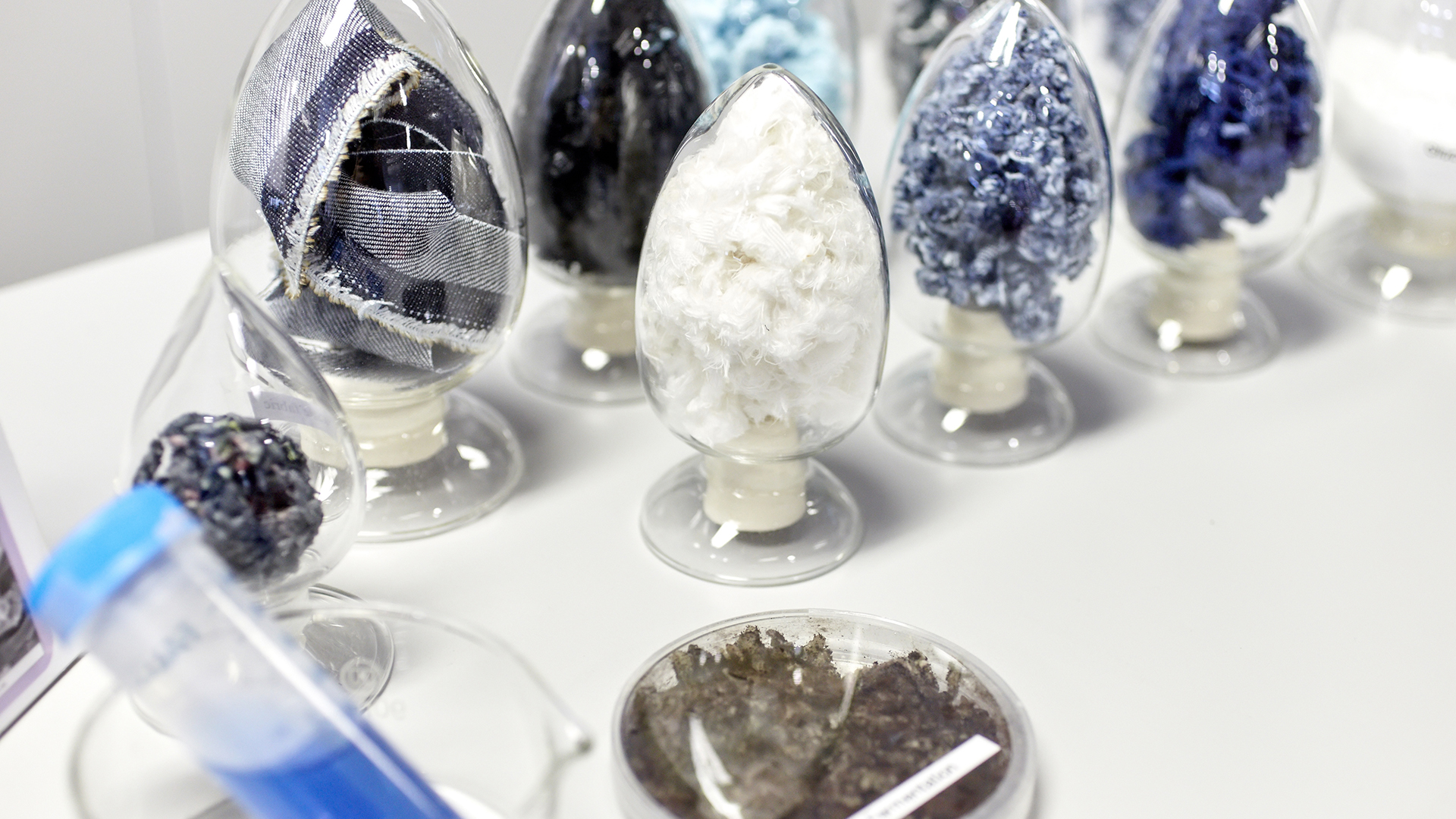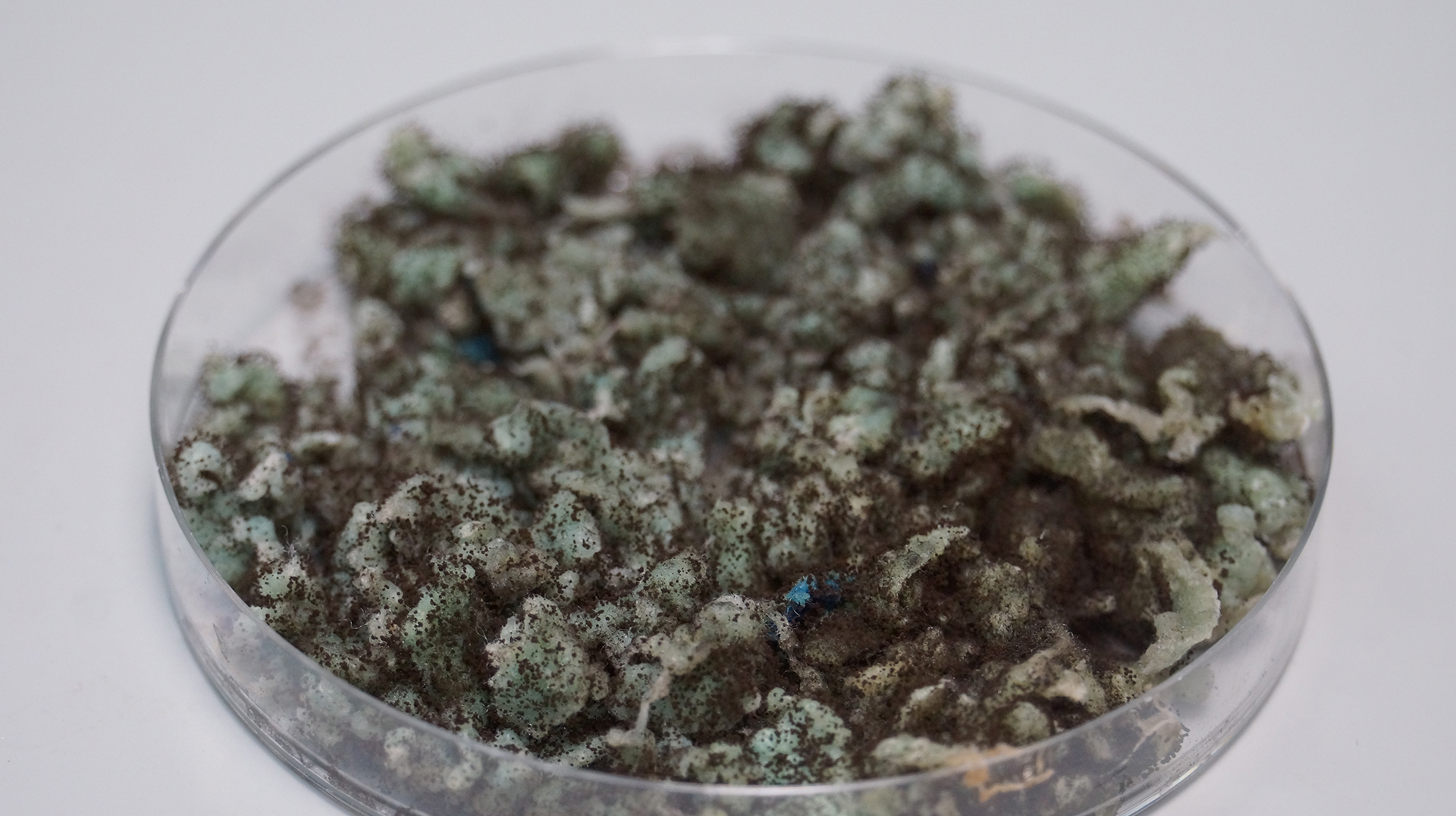Textile Waste Recycling by Biological Method Phase II
The process consists of three main steps: 1) Modification of textile waste, 2) Enzyme production by fungal cultivation, 3) Enzymatic hydrolysis and 4) product refining. The enzymes efficiently degrade the natural fibre (i.e. cotton) in the textile waste into glucose, leaving the highly pure polyester residues for the subsequent re-spinning process.
The proposed biorefinery strategies are capable of recycling most textiles such as 100% cotton, 100% polyester, jeans, and cotton-polyester blend textiles. It provides a green technology to enable a closed-loop recycling strategy for the textiles industry by capturing the embodied value of the synthetic fibre. The bio-based products derived from textile waste can replace fossil fuel resources and eventually lead to the establishment of a sustainable and circular economy.
Get in touch with us
If you have any enquiries or comments, feel free to contact us!
* Mandatory fields
Thank you for reaching out.
We will be in touch soon.


